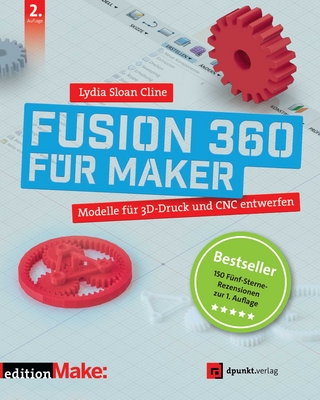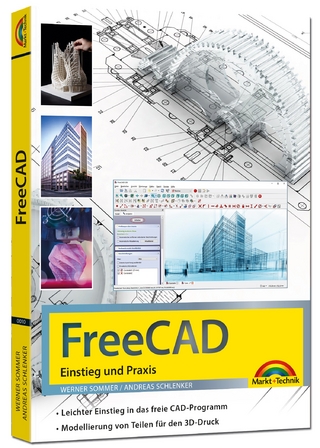
An Introduction to Modern Mathematical Computing
With Mathematica®
Seiten
2016
|
Softcover reprint of the original 1st ed. 2012
Springer-Verlag New York Inc.
978-1-4939-4295-4 (ISBN)
Springer-Verlag New York Inc.
978-1-4939-4295-4 (ISBN)
and the building of the Three “M’s” Maple, Mathematica and Matlab.We intend to persuade that Mathematica and other similar tools are worth knowing, assuming only that one wishes to be a mathematician, a mathematics educator, a computer scientist, an engineer or scientist, or anyone else who wishes/needs to use mathematics better.
Thirty years ago mathematical, as opposed to applied numerical, computation was difficult to perform and so relatively little used. Three threads changed that: the emergence of the personal computer; the discovery of fiber-optics and the consequent development of the modern internet; and the building of the Three “M’s” Maple, Mathematica and Matlab.
We intend to persuade that Mathematica and other similar tools are worth knowing, assuming only that one wishes to be a mathematician, a mathematics educator, a computer scientist, an engineer or scientist, or anyone else who wishes/needs to use mathematics better. We also hope to explain how to become an "experimental mathematician" while learning to be better at proving things. To accomplish this our material is divided into three main chapters followed by a postscript. These cover elementary number theory, calculus of one and several variables, introductory linear algebra, and visualization and interactive geometric computation.
Thirty years ago mathematical, as opposed to applied numerical, computation was difficult to perform and so relatively little used. Three threads changed that: the emergence of the personal computer; the discovery of fiber-optics and the consequent development of the modern internet; and the building of the Three “M’s” Maple, Mathematica and Matlab.
We intend to persuade that Mathematica and other similar tools are worth knowing, assuming only that one wishes to be a mathematician, a mathematics educator, a computer scientist, an engineer or scientist, or anyone else who wishes/needs to use mathematics better. We also hope to explain how to become an "experimental mathematician" while learning to be better at proving things. To accomplish this our material is divided into three main chapters followed by a postscript. These cover elementary number theory, calculus of one and several variables, introductory linear algebra, and visualization and interactive geometric computation.
Jonathan M. Borwein is currently Laureate Professor in the School of Mathematical and Physical Sciences at the University of Newcastle (NSW) with adjunct appointments at Dalhousie and at Simon Fraser. He received his Doctorate from Oxford in 1974, and has published extensively in optimization, analysis and computational mathematics, and has received various prizes both for research and for exposition. He directs the University of Newcastle’s Priority Research Centre in Computer Assisted Research Mathematics and its Applications (CARMA).
Preface.- Conventions and Notation.- 1. Number Theory.- 2. Calculus.- 3. Linear Algebra.- 4. Visualisation and Geometry: a Postscript.- Sample Quizzes.- Index.- References.-
| Erscheinungsdatum | 19.08.2017 |
|---|---|
| Reihe/Serie | Springer Undergraduate Texts in Mathematics and Technology |
| Zusatzinfo | XVI, 224 p. |
| Verlagsort | New York |
| Sprache | englisch |
| Maße | 178 x 254 mm |
| Themenwelt | Informatik ► Grafik / Design ► Digitale Bildverarbeitung |
| Mathematik / Informatik ► Informatik ► Theorie / Studium | |
| Mathematik / Informatik ► Mathematik ► Analysis | |
| Mathematik / Informatik ► Mathematik ► Angewandte Mathematik | |
| Mathematik / Informatik ► Mathematik ► Computerprogramme / Computeralgebra | |
| Mathematik / Informatik ► Mathematik ► Wahrscheinlichkeit / Kombinatorik | |
| Schlagworte | Mathematica • Mathematical Computing • Mathematical Modeling • Mathematics Software • undergraduate mathematics |
| ISBN-10 | 1-4939-4295-6 / 1493942956 |
| ISBN-13 | 978-1-4939-4295-4 / 9781493942954 |
| Zustand | Neuware |
| Informationen gemäß Produktsicherheitsverordnung (GPSR) | |
| Haben Sie eine Frage zum Produkt? |
Mehr entdecken
aus dem Bereich
aus dem Bereich
alles zum Drucken, Scannen, Modellieren
Buch | Softcover (2024)
Markt + Technik Verlag
24,95 €
Modelle für 3D-Druck und CNC entwerfen
Buch | Softcover (2022)
dpunkt (Verlag)
34,90 €


